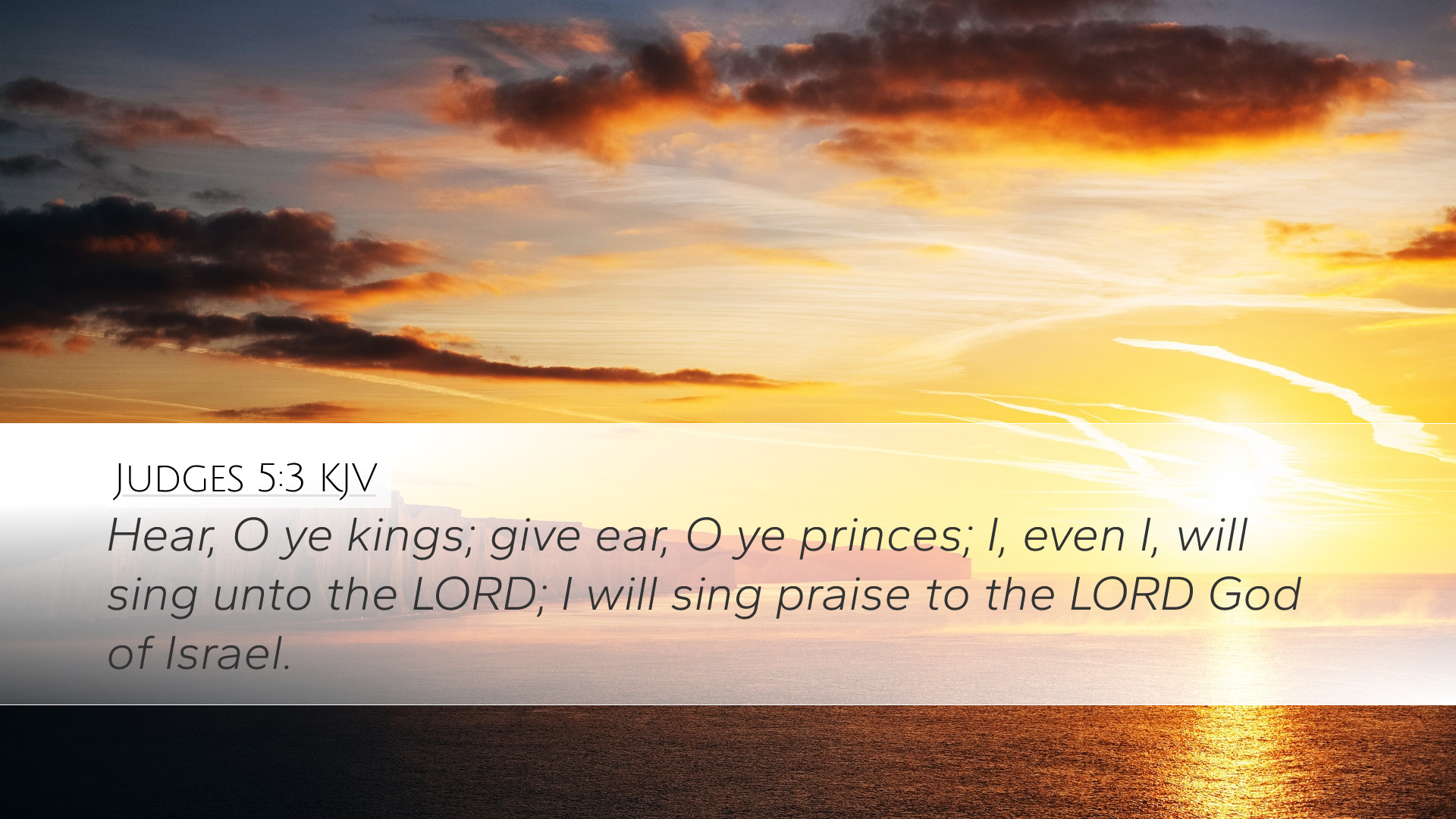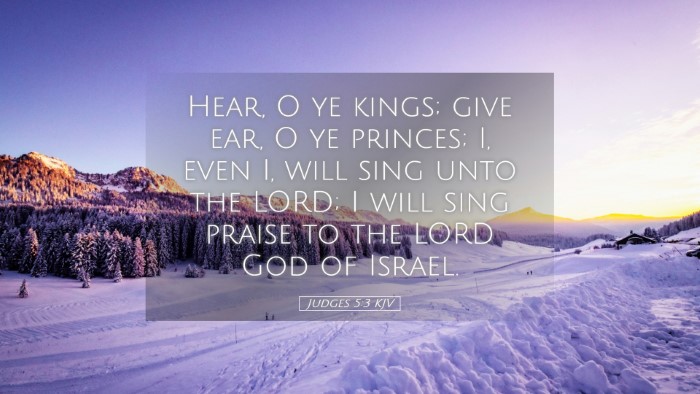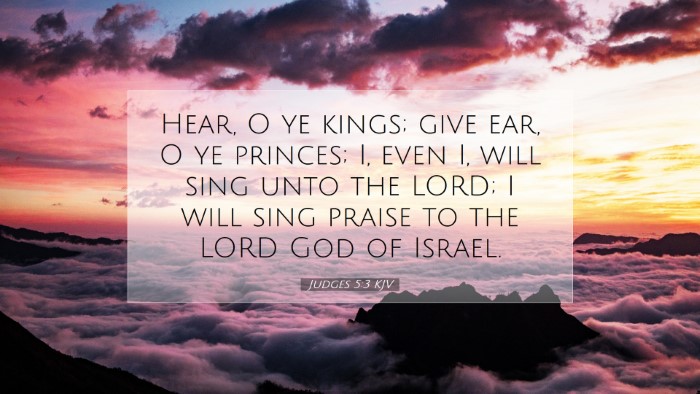Commentary on Judges 5:3
Judges 5:3 states, "Hear, O kings; give ear, O princes; I, even I, will sing unto the Lord; I will sing praise to the Lord God of Israel." This verse forms a part of the Song of Deborah, which is a significant poetic piece celebrating God's victory over Israel's enemies.
Contextual Background
The Book of Judges narrates a tumultuous period in Israel's history, marked by cycles of sin, oppression, repentance, and deliverance. Deborah's song serves as a historical reflection on divine intervention and victory. The call for attention from kings and princes signifies the universal relevance of God's sovereignty.
Insights from Public Domain Commentaries
Matthew Henry's Commentary
Matthew Henry emphasizes that Deborah's invocation to rulers is not merely a call to listen, but a proclamation of God's glory and power. He notes that Deborah places God at the center of her song, highlighting His role in Israel's deliverance. This passage reflects a deep sense of worship and reverence, wherein the acknowledgment of God's deeds becomes a communal experience.
Albert Barnes' Notes on the Bible
Albert Barnes draws attention to the significance of Deborah's song in the context of Israel's oppression. He suggests that the term "sing" in this verse denotes both public acknowledgment and celebration of God’s justice. The address to kings and princes indicates that the deeds of the Lord are of importance for all, regardless of their social standing. He asserts that God’s intervention demands recognition from the highest to the lowest, encouraging a sense of humility and gratitude.
Adam Clarke's Commentary
Adam Clarke provides insight into the poetic structure of the verse. He points out that the phrase “I will sing” reflects a personal and communal declaration. Clarke notes that singing is often a response to divine acts of deliverance, establishing it as a vital aspect of worship in ancient Israel. He emphasizes the theological implications of this verse, suggesting that it is a reminder for leaders to recognize their dependence on divine authority.
Thematic and Theological Significance
This verse demonstrates key themes relevant to theology and ecclesiastical leadership:
- Divine Sovereignty: The acknowledgment of God’s centrality in the victories of Israel speaks to His power and authority over earthly rulers.
- Worship as a Response: The act of singing is a profound expression of worship, serving as an appropriate response to God’s actions in history.
- Call to Accountability: The imperative for kings and princes to listen signifies a divine accountability that transcends mere political authority.
- Community and Leadership: The emphasis on collective remembrance fosters unity among God's people, encouraging leaders to inspire faithfulness among their followers.
Practical Application for Leaders and Theologians
For pastors, students, and scholars of the Bible, Judges 5:3 serves as an instructive tool for reflection on worship and leadership. The call to “hear” aligns with the necessity of attentive and responsive leadership. It invites leaders to engage their communities in acts of worship that reflect upon God’s faithfulness.
- Encouraging Praise: Church leaders are prompted to motivate their congregations to remember and celebrate God's faithfulness through worship.
- Establishing Accountability: Just as Deborah calls out to rulers, contemporary leaders must hold themselves and others accountable to God's standards and teachings.
- Fostering Unity: This verse reminds the community to unite in song, emphasizing the importance of collective worship and corporate identity in Christ.
Conclusion
In conclusion, Judges 5:3 offers profound insights on the nature of worship and the expectation of leaders in recognizing and responding to God’s sovereignty. The integration of various public domain commentaries enriches our understanding of the text, bringing forth a timeless message that resonates with faith communities today.


